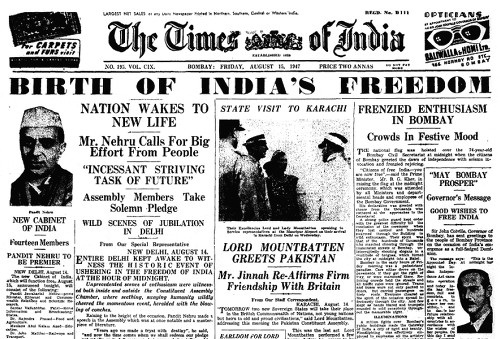Donate to Links
Click on Links masthead to clear previous query from search box
Inspired by the unfolding socialist revolution in Venezuela, as well as the continuing example of socialist Cuba, Links International Journal of Socialist Renewal is a journal for "Socialism of the 21st century", and the discussions and debates flowing from that powerful example of socialist renewal.
Links is also proud to be the sister publication of Green Left Weekly, the world's leading red-green newspaper, and we urge readers to visit that site regularly.
Please explore Links and subscribe (click on "Subscribe to Links" or "Follow Links on Twitter" in the left menu). Links welcomes readers' constructive comments (but please read the "Comments policy" above).
This site is best viewed with the Firefox internet browser.
Inquiries to Links
Due to illness affecting Links editor, Terry Townsend, publishing of pieces and communcation may be slower than usual, although we will endenvour to keep a stready flow new pieces and respond to queries as rapidly as possible. Please send queries or submissions to contact (AT) links (DOT) org (DOT) au.Catalonia: Half-won independence battle guarantees harsher war with Spanish state
 More than 1.4 million people marched to support Catalan independence on September 11. The September 27 elections were seen as a de facto referendum on independence, in which pro-independence parties won a majority of seats but not the popular vote.
More than 1.4 million people marched to support Catalan independence on September 11. The September 27 elections were seen as a de facto referendum on independence, in which pro-independence parties won a majority of seats but not the popular vote.
By Dick Nichols
Who
won the September 27 elections for the Catalan parliament, called as
a substitute for the Scottish-style independence referendum that the
People's Party (PP) government of the Spanish state has always
refused to allow? It depends whom you ask.
On the night most of the commentators on Madrid-based TV and radio called the result as a defeat for the pro-independence camp: its two tickets—the mainstream nationalist Together for Yes and the anti-capitalist People's Unity Candidacies (CUP)--had won only 47.74% of the vote against 52.26% for "the rest".
India Yesterday: Development and Revolution (Part 1 of Three-Part Series)

Front page of the Times of India on August 15, 1947.
SYRIZA’s Pyrrhic victory, and the future of the left in Greece

Syriza supporters celebrate re-election of Alexis Tsipras as Greece's president.
by Richard Fidler
September 25, 2015 -- lifeonleft.blogspot.com reposted at Links International Journal of Socialist Renewal with permission -- In the wake of the September 20 Greek election SYRIZA has once again formed a coalition government with a small right-wing party, ANEL.[1] Both parties lost votes and seats but their standing, like those of most other parties, was not very dissimilar to the results in January, when SYRIZA was first elected.
SYRIZA’s 35.46% and ANEL’s 3.69%, combined, were sufficient to give them a majority of 155 seats in the 300-seat parliament under Greece’s electoral law, which gives 50 additional seats to the party with a plurality, in this case (as before) SYRIZA. However, voter turnout was at an all-time low, 44% of the electorate abstaining although voting is mandatory in Greece. This means that SYRIZA was supported by only 20% of eligible voters.[2]
And this is a very different party, and government, than the one elected in January.
Greece: SYRIZA's scores clear win amid high abstention, more austerity

Read more on Greece.
By Dick Nichols
SYRIZA pulled off a remarkable victory at the September 20 Greek election. Although burdened by its acceptance of the draconian third memorandum of Greece's creditors and eight months of rule in the midst of recession, closed banks and capital controls, SYRIZA's vote fell by only 0.88% and its parliamentary seats by just four.
On September 20 SYRIZA won 35,46% and 145 seats: at the January 25 election it won 36.34% and 149 seats. Its lead over the main opposition party, the conservative New Democracy, fell by only 1.17%, from 8.53% in January to 7.36% today.
While the ND vote increased marginally, from 27.81% to 28.1%, it actually lost a seat, passing from 76 to 75.
In January, SYRIZA was the leading party in 42 of Greece's 56 constituencies, and ND in 14: after this election the numbers are exactly the same, with SYRIZA overtaking ND as leading party in three regional constituencies, while ND replaced SYRIZA as leading party in another three.
Is Maduro taking Chavismo down the pragmatic path? An interview with Steve Ellner (part 2)

Steve Ellner addresses a forum in 2014 on Chavismo in Caracas, Venezuela.
In the first part of the interview (available here) conducted by Evaristo Marcano, Professor Steve Ellner contextualized government politics that favored those businesspeople who did not support the general strike of 2002-2003. According to him, the strategy was relatively successful from a political viewpoint, but not an economic one. In the second part of the interview, Ellner argues that populist policies also have to be contextualized in order to be objectively analyzed. At the same time, he calls for a critical examination of the assertion that the government’s social programs and labor policies have generated low levels of productivity.
E.M. Populism is a topic that has been widely studied and has generated considerable polemics. Renowned analysts specializing in Latin America have dedicated considerable effort to understand the phenomenon. Recently, Margarita López Maya, in an article published in a daily of national circulation, maintained that the upcoming elections in Venezuela will pit the populist model against democracy. By framing the issue in these terms, is she not ignoring the complexity of a phenomenon that, at least in Latin America, has many variations?
Naomi Klein: 'Now is not the time for small steps. Now is the time for boldness'

Speech given by Naomi Klein (pictured) on September 5 to the Festival of Dangerous Ideas, Sydney Opera House, Sydney.
Nicolas Del Caño (FIT): 'Queremos una izquierda que denuncie a la casta política y acompañe a los trabajadores en sus luchas'

Iniciado hace poco más de cuatro años, el Frente de Izquierda y de los Trabajadores frontal (FIT) se ha convertido en un punto de referencia clave para la izquierda en Argentina, y está rápidamente ganando su lugar en la escena política nacional.
Is Maduro taking Chavismo down the pragmatic path? An interview with Steve Ellner (part 1)

Steve Ellner addresses a forum on Chavismo in Caracas, Venezuela.
Steve Ellner is a well-known analyst of Venezuelan and Latin American politics and is a retired professor at the Universidad de Oriente. He has published scores of journal articles and over a dozen books, his last being the edited Latin America’s Radical Left: Challenges and Complexities of Political Power in the Twenty First Century, published by Rowman & Littlefield.
This interview by Evaristo Marcano was originally published in Spanish in Aporrea.org and Rebelion.org
Argentine Left presidential candidate: 'We want a hard left that denounces the political caste and fights with workers'

Initiated just over four years ago, the Left and Workers Front (FIT) in Argentina has become a key reference point on the left, and is quickly earning its place on the national political scene.
The FIT was formed as an alliance of three Trotskyist parties: the Socialist Workers’ Party (PTS), Workers Party (PO) and Socialist Left (IS). It began largely as an attempt to overcome new electoral obligations requiring parties to win more than 1.5% of the vote in Open, Simultaneous and Obligatory Primaries (PASO) in order to stand in elections.
In a context where the far left has traditionally performed poorly in presidential elections, the FIT were relatively successful in their first electoral venture – the 2011 PASO for that year’s national election - with presidential pre-candidate and historic figure on the left, Jorge Altamira, winning over half a million votes (2.46%).
In the PASO held July this year, more than 750,000 people voted for one of the two FIT presidential pre-candidates. Unable to come up with a united slate, the FIT used the mechanism of the primaries to let voters decide their candidate list for president-vice president.
Left Unity on Jeremy Corbyn: The people’s victory shows everything is possible

Jeremy Corbyn addresses a crowd of 2500 on August 3, at Camdeen Town Hall in London. Photo via Twitter/@corbynforleader. More on Jeremy Corbyn and Left Unity.
Left Unity, September 12 -- Jeremy Corbyn is the new leader of the Labour Party. Who could have imagined writing such a sentence only a few weeks ago? His victory shatters the austerity consensus that has dominated British politics for the last five years.
This is a victory for the movement as a whole. It is a victory for all those opposing the welfare cuts, for all those campaigning against war and racism, for all those fighting to defend our NHS and a host of other issues.
Jeremy’s election will have the effect of a dam breaking in British political life. It will shift the centre of political gravity to the left.
There were two intersecting currents behind the dramatic growth of the Corbyn campaign. Firstly there was the long pent-up resentment against the Blairite wing of the party, which the new process for electing the leadership allowed to be unleashed.
Oskar Lafontaine: Let’s develop a Plan B for Europe!

By Oskar Lafontaine (pictured)
Many
in Europe had put great hopes in the election of Alexis Tsipras as
Greek Prime Minister. When, after long and exhausting negotiations,
the Syriza leader signed the European diktat, the disappointment was
great.
It would be unjust and presumptuous to want to give moral lessons to Alexis Tsipras and Syriza. After these experiences for the European left, it would be better to reflect on the conditions in which a democratic and social politics (and thus a left politics) is possible in Europe. We have learned one thing: while the European Central Bank, which claims to be independent and apolitical, can turn off the financial tap to a left government, a politics that is oriented towards democratic and social principles is impossible.
Scotland: Colin Fox on the RISE left alliance's launch and platform
Click for more on left politics in Scotland
August 25, 2015 -- STV News, posted at Links International Journal of Socialist Renewal -- On August 29 in Glasgow we will see the birth of a Rise, a new left wing anti-austerity movement designed to shake up Scotland's political establishment and win seats at next year's Holyrood elections.
Born out of the referendum campaign using an umbrella model based on SYRIZA in Greece, the alliance brings together activists from different left-wing strands on a platform spelled out by its name: Respect, Independence, Socialism, Enviromentalism.
The group's website carries a statement of intent, which reads: "There is a need for something truly new and original to be born out of the independence movement that can manifest itself at the ballot box in 2016 and beyond. We do not presume to have all of the answers, but we intend to start a conversation around certain core principles that must be represented in politics once more.
Stephen F. Cohen on Ukraine: Meeting shows 'Kiev, not Moscow, blocking peace deal'
Click for more on the political situation in Ukraine.
August 26, 2015 -- New Cold War.org, posted by Links International Journal of Socialist Renewal -- Stephen F. Cohen, contributing editor to The Nation, was interviewed on the the John Batchelor Show, WABC radio in New York City. They discuss the news of a ceasefire agreement in eastern Ukraine for a cessation of hostilities beginning September 1, 2015, and the recent meeting in Berlin on August 24 of Germany's Chancellor Angela Merkel, France's President François Hollande and Ukraine's President Petro Poroshenko.
Yanis Varoufakis: 'Our Athens Spring'

For more on Greece's struggle against austerity, click HERE.
Links International Journal of Socialist Renewal – This speech was delivered on August 23, 2015, by former Greek finance minister Yanis Varoufakis, at the Festival of the Rose, at Frangy-en-Bresse, in the French department of Saône-et-Loire. The festival is organised by the local organisation of the French Socialist Party, which is associated with former French industry minister Arnaud Montebourg. Montebourg was sacked from this post in August 2014 by French Prime Minister Manuel Valls.
* * *
Let me tell you why I am here with words I have borrowed from a famous old manifesto. I am here because:
A spectre is haunting Europe — the spectre of democracy. All the powers of old Europe have entered into a holy alliance to exorcise this spectre: The state-sponsored bankers and the Eurogroup, the Troika and Dr Schäuble, Spain’s heirs of Franco’s political legacy and the Social Democratic Party (SPD) of Germany's Berlin leadership, Baltic governments that subjected their populations to terrible, unnecessary recession and Greece’s resurgent oligarchy.
John Green: ‘Stasiland’ offers ‘cheap caricature’ of the GDR

Click HERE for more on 'East Germany'.
Review by John Green
August 26, 2015 – Links International Journal of Socialist Renewal -- Anna Funder’s book Stasiland seems to have become the touchstone for anyone who wishes to find out about life in the German Democratic Republic (GDR, or East Germany). It was given enormous publicity, has been translated into several languages and is one of the most quoted books of reference on the GDR. Its aim is to show how horrendous life in the GDR really was.
Funder visited the GDR once as a tourist in 1987 and then returned again in 1996 (six years after unification with the Federal Republic of Germany, or West Germany) and wrote her book. It is made up almost entirely of interviews with only three women who suffered under the GDR authorities, plus a former GDR rock star, a television presenter who was loyal to the state, as well as several shorter ones with former officers of the state security services.
The raw material of exploitation: Harry Braverman's 'Labor and Monopoly Capital'

For more by Doug Enaa Greene.
By Doug Enaa Greene
August 26, 2015 – Links International Journal of Socialist Renewal -- Work sucks. Every day, workers go into jobs they hate, whether in a factory, office or on a checkout line. Workers are made to perform menial and demeaning tasks that have already been outlined for them, down to the smallest details, by management. Their job is so simple that anyone can do it. Ultimately, the worker possesses no control at the workplace.
How that situation came about and what it means for class struggle is the subject of Harry Braverman's classic work, Labor and Monopoly Capital. Braverman's book not only unveils how work is degraded under capital, but remains an important resource for how we understand capitalist society, working-class consciousness, and the class struggle today.
John Riddell on Zimmerwald, 1915: New socialist resistance against war

Site of Zimmerwald conference
Click for more by or about John Riddell.
By John Riddell
August 21, 2015 -- Johnriddell.wordpress.com, posted at Links International Journal of Socialist Renewal with permission -- The Zimmerwald conference, a small gathering held in Switzerland 100 years ago, on September 5-8, 1915, marked a turning point in the world socialist movement. Socialists from many countries issued an appeal that united anti-war socialists during World War I and helped prepare the revolutions with which it concluded. To mark the Zimmerwald centenary I am presenting links to three major documents of the conference in new translations, together with my short introduction.
Documents of the Zimmerwald conference
RISE: Scotland's new left alliance to launch

New political force will launch on August 29
August 24, 2015 -- Scottish Left Project, posted at Links International Journal of Socialist Renewal -- We are pleased to announce the name under which the new coalition of the left being launched on August 29 will stand. Our name -- RISE, Scotland's Left Alliance -- reflects our political outlook and organisational make-up.
Respect: We stand for a society where we end racism, sexism, discrimination on the grounds of sexuality and where people of all backgrounds, colours and creeds are treated with respect and dignity.
Independence: We stand for Independence for Scotland. But our Independence is based on ending neoliberalism, austerity and the membership of NATO. We are for ending the monarchy and putting people in charge.
Socialism: We are for a social alternative to capitalism where people run the affairs of our society democratically and where the vast resources of society are utilised in common, rather than for the super-rich.
Grecia, ruptura en Syriza: ¡Nace 'Unidad Popular'!

Panagiotis Lafazanis.
[English at http://links.org.au/node/4560.]
Por Stathis Kouvelakis, Athens
21 de agosto de 2015 -- Viento Sur -- Esta mañana, a primera hora, 25 diputados de Syriza abandonaron el grupo parlamentario del partido para crear una nueva formación bajo el nombre de "Unidad Popular". La mayor parte de estos diputados están afiliados a la Plataforma de Izquierdas, pero se han unido también otros como Vangelis Diamantopoulos o Rachel Makri, una estrecha colaboradora de Zoe Konstantopoulou.
Este es un acontecimiento importante en la política griega, pero también para la izquierda radical en Grecia y a escala internacional.
Se deben subrayar tres elementos:
El primero es que "Unidad Popular" es el nombre de un nuevo frente político que reagrupará a trece organizaciones de la izquierda radical, aquellas que firmaron el texto publicado el 13 de agosto a favor de la constitución de un "Frente por el NO". Este frente es por lo tanto el primer resultado tangible de la recomposición de la izquierda radical de Grecia. Una recomposición que extrae todas las lecciones de los últimos cinco años y, por supuesto, de la experiencia de Syriza en el poder y de la catástrofe en la que ha desembocado.
Should Ecuador's left work with the right against Rafael Correa?

Banker and opposition leader Guillermo Lasso (second from right) meets with leaders from the Pachakutik political party in their offices in April 2015.
For more on Ecuador, click HERE.
By Pablo Vivanco
August 20, 2015 -- Originally published by TeleSUR English, posted at Links International Journal of Socialist Renewal -- For a relatively small nation, in terms of size, population and economics, Ecuador has been a major player in contemporary Latin American politics, particularly on the left.
The experience of toppled governments by popular uprisings, led by Indigenous organisations with radical left-oriented politics, has contributed to a regional shift that ushered in the Bolivarian Revolution in Venezuela and later the election of Evo Morales’ Movement Toward Socialism in Bolivia.










Recent comments
6 days 2 hours ago
5 weeks 3 days ago
5 weeks 5 days ago
7 weeks 4 days ago
7 weeks 4 days ago
7 weeks 4 days ago
7 weeks 4 days ago
7 weeks 5 days ago
7 weeks 5 days ago
7 weeks 6 days ago